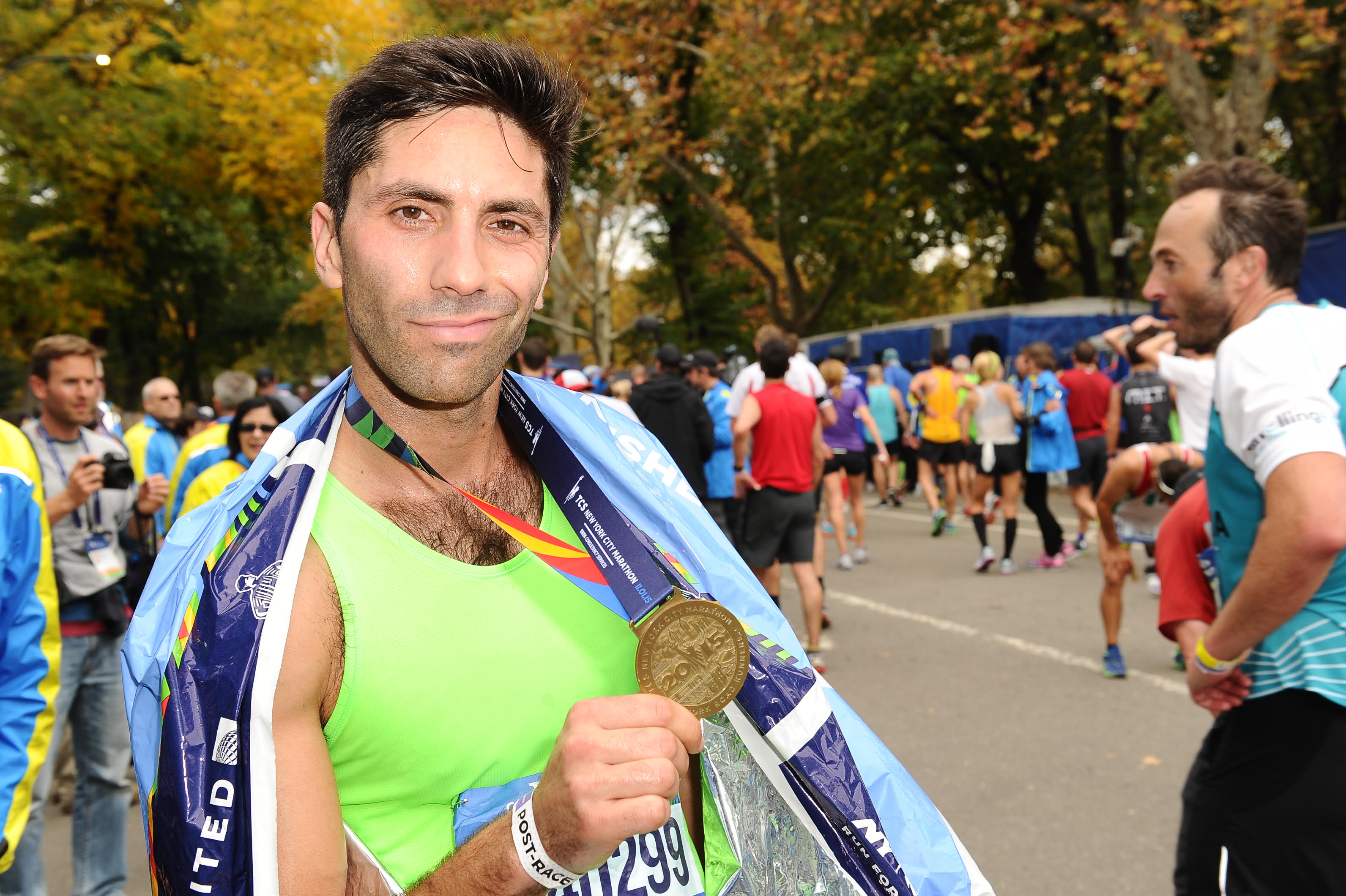Nev Schulman's Advice on How to Set Goals

By:
Runners say that the hardest thing about running a marathon is hitting “the wall.” It's that moment somewhere between mile 20 and 24 where your body starts to shut down and you feel like you can’t take another step. For me, I don’t remember a moment when I hit the wall but I do have one moment that I’ll never forget.
It was during mile 22. I was coming down Fifth Avenue. My toes were hurting. My arms were sore. I was getting pretty tired. Suddenly, I heard the words, “On your right!” coming up fast behind me. Seconds later, two runners escorting a 40-something-year-old blind woman cruised past me. This would be, without a doubt, the defining moment of my New York City marathon.

I’ve always been a very competitive person. When I set the goal to run the marathon, I set the goal to run it in three hours. So, to some extent, I was disappointed when I realized I wasn’t going to finish in time. I know that if I had been willing to commit more during training, I could have achieved my goal, but I also didn’t want to kill myself to do it. So I let the first marathon be about balance: I can run a 3:30 marathon comfortably. I learned to set realistic goals.
So, here’s my roadmap to setting goals and achieving them.
You have nothing to lose: a recent study conducted by Dominican University psychology professor Gail Matthews, Ph.D., revealed that people who wrote down their goals were able to successfully complete them compared to people who did not. It generally helps to create a better vision and plan for yourself.
Set small, specific goals on the path to your big goal.
If you have a vague goal such as, “start exercising” or a big goal like, “run the 2015 New York City Marathon,” the experts say that you should break it down into small chunks. Yes, it’s important to push yourself, but if your brain perceives your goal as too big a change from your daily life, the “fight or flight response” could result in you putting it off for weeks or months at a time (footnote: Dr. Robert Maurer, “One Small Step Can Change your Life: The Kaizen Way”). Instead of “start exercising” try “do five jumping jacks a day.” I had a bunch of goals on the way to “run my first marathon” like “run three times a week for 20 minutes,” “run a six-minute mile” and “run a half marathon.”
Then write your goals down.
Those with written goals are often more successful than those who simply have goals. Don’t forget to jot down why you set your goal because it will keep you motivated.
Share your goal with others and update them on your progress.
It can be scary and you might think, 'If I tell everyone I’m doing this and then back out, I’ll seem like a fraud,' but that’s exactly why you should do it: accountability. Plus your friends and family will help you when times get rough, whether it’s a benchmark celebration or a gentle shove out of bed in the morning. I shared my marathon training on social media to keep me accountable and motivated.
Finally, I want to remind you that goal setting is a tool for you to challenge yourself and feel good about yourself. I’ll be looking for your status updates to cheer you on.

